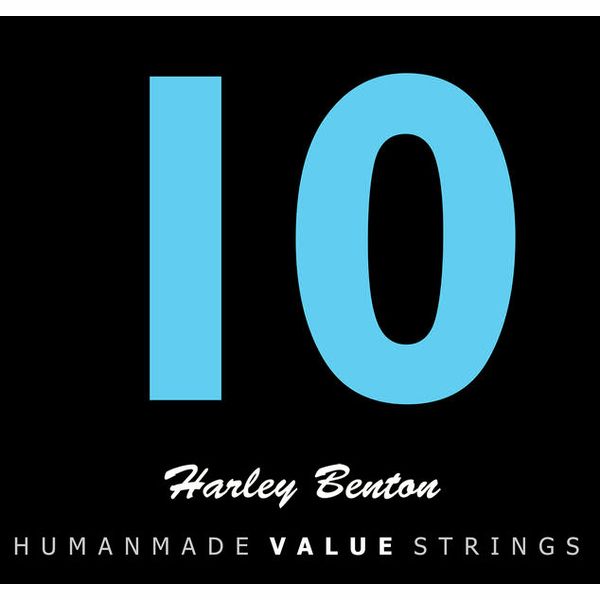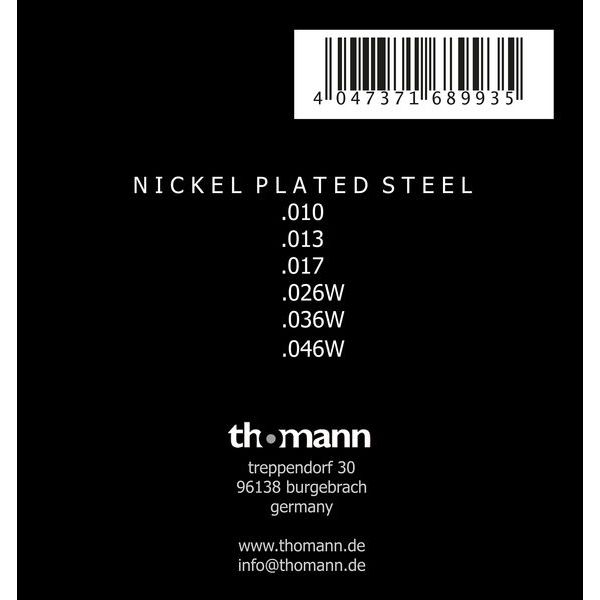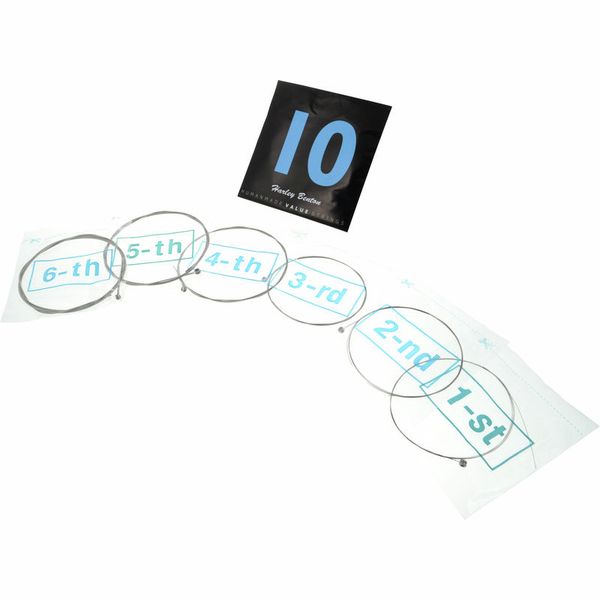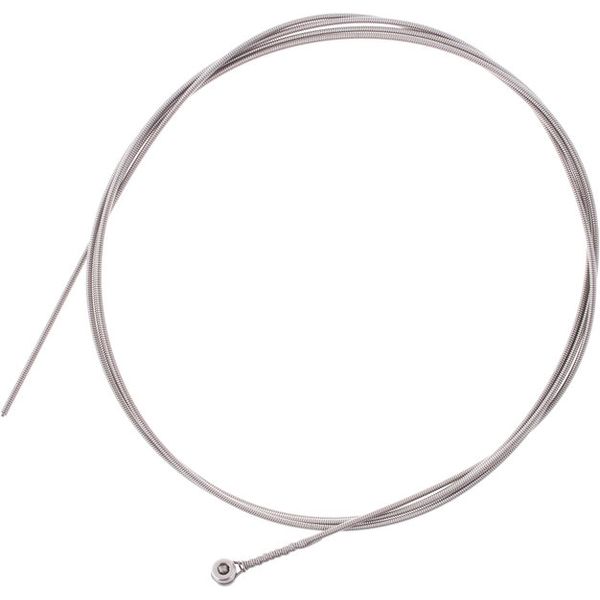I have been using 10-46 string sets for years - mainly those manufactured by the "name brands". When I discovered the Harley Benton Value Strings product line (and their amazing price point), I had to try them out.
Pros:
- The sound is on par with the "name brands". I don't personally hear any significant difference.
- The durability of the strings is also similar to that of the name brands. I usually change the strings after 100 hours of playing. At the end of their lifespand, the condition of the strings is very similar to that of the name brands. I occasionally snap the first string (high E), but the frequency of it occurring is similar as in the case of the more expensive string sets.
- The treble strings (first three, E, B, G) are surprisingly corrosion resistant. My experience is that the name brands corrode faster (high-friction dark rust starts to emerge). It is as if there is there some sort of anti-corrosion layer applied on the treble strings.
- The price point is extremely competitive. I could easily afford changing the strings much more frequently.
Cons:
- The treble strings remain slightly "curled" when I unwind them from their packages. By comparison, the name brand strings seem to have better "material memory" in such a way that they become completely straight upon unboxing. Of course, This has no effect on playability.
- The strings appear slightly "multi-colored": it seems as if there is a thin layer of oil on the string surface, which causes a rainbow-like appearance due to optical refraction. Again, this has no effect on playability.
- My guitar has stainless steel frets, and it seems that the fourth string (D) wears out slightly faster than the name brands at those points where the string is in contact with the fret. Maybe the metal used in the wounding is slightly softer in the HB Value Strings (when compared to name brands). This (having a visible/tangible wear in the wounding of the D string) is a good reminder that the strings should be changed.
- String bending on the treble strings is slightly more laborious (when compared to name brands). It is as if the treble strings are slightly heavier than the nominal .010, .013, .017 gauges (I have not measured their thicknessess). I have to apply more force when bending, and the strings feel "slippery" in the sense that they tend to slip away from my fingertip. I notice this phenomenon every time I switch between the HB Value Strings and a string set from a name brand.
Despite the minor disadvantages, the HB Value Strings 10-46 is the string set that I mainly use on my main guitar. I still occasionally switch to a pack of name brand strings (mainly to get that ease of bending), but most of the time I am playing on the Value Strings.
The HB Value Strings is an excellent choice for a budget-savvy player. If you don't have much need to perform string bending (e.g., if you are a strict rhythm guitarist), then there are no downsides in using the product.












